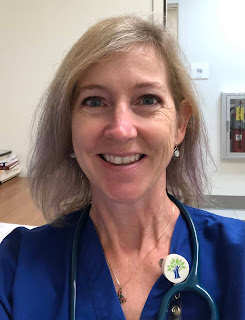As a faculty member of the only academic health system on the upper Gulf Coast, Vamesu also will serve as an assistant professor of pediatrics at the USA College of Medicine.
“I really enjoy working with residents, fellows and medical students,” Vamesu said. “It keeps me up-to-date on the latest advances in neonatal medicine, which ultimately improves outcomes for our young patients.”
USA Health’s exceptional outcomes for premature infants treated in the NICU was a big part of why she joined the staff. Helping infants born too soon was another.
“Neonatology is challenging and rewarding,” she said. “And I love working with babies.”
Typically, about 1,000 babies a year are cared for in the NICU. In 2019, a small baby unit known as “The Cove” opened inside the intensive care unit where extremely premature infants born at 26 weeks gestation or weighing less than 2.2 pounds are grouped together for better outcomes.
A native of Romania, Vamesu attended Ovidius University of Constanta, in Constanta, Romania, followed by a residency in neonatology at the Hospital of Obstetrics and Gynecology in Bucharest, Romania. After working at hospitals in France and England, she moved to the United States in 2015 for a position at Driscoll Children’s Hospital in Corpus Christi, Texas. In 2018, she began a three-year perinatal/neonatal fellowship at the University of Alabama at Birmingham that ended in June 2021.
Vamesu is certified by the American Board of Pediatrics and is a member of the American Academy of Pediatrics. She is fluent in English, French and Romanian.







